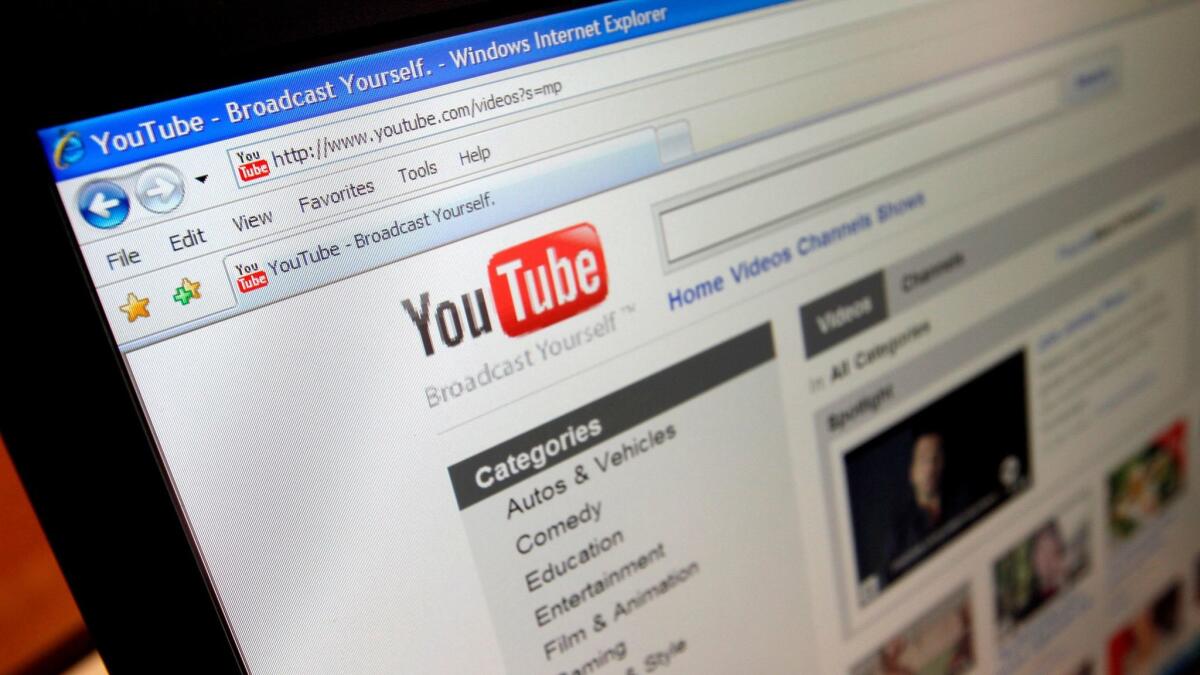YouTube won’t put ads on channels with fewer than 10,000 views

- Share via
YouTube will no longer display ads on videos from channels with fewer than 10,000 views, a move the company says was in the works long before the current controversy over ads appearing before extremist videos.
The video-hosting platform, which is owned by Google, announced the changes in a Thursday blog post, saying the new view count threshold gives YouTube enough information to ensure creators that reap money from their content are following the site’s guidelines and advertising policies.
YouTube said this change has been in the works since November and was designed to “protect creators first and foremost.” The company has algorithms that can detect copyright infringement and YouTube recently improved processes to allow users to report channels that impersonate other content creators.
Last month, a number of companies, including Johnson & Johnson and General Motors Co., said they were suspending their advertising on YouTube after an investigation by Britain’s the Times showed how ads appeared alongside videos that promote hate and extremism.
Alexander Meleagrou-Hitchens, research director at George Washington University’s program on extremism, said the most extremist videos are now found largely through encrypted apps or on third-party download sites — not YouTube. Those that do make it onto the platform are generally taken down quickly and few reach the 10,000-view mark, he said.
YouTube said it will also add an additional review process for new applicants to the YouTube Partner Program, which allows video creators to earn money from their content. Once the creator’s channel hits 10,000 views, the company will ensure its activity follows the site’s rules before accepting the creator into program.
“Together these new thresholds will help ensure revenue only flows to creators who are playing by the rules,” YouTube said in its blog post.
Twitter: @smasunaga
More to Read
Inside the business of entertainment
The Wide Shot brings you news, analysis and insights on everything from streaming wars to production — and what it all means for the future.
You may occasionally receive promotional content from the Los Angeles Times.











